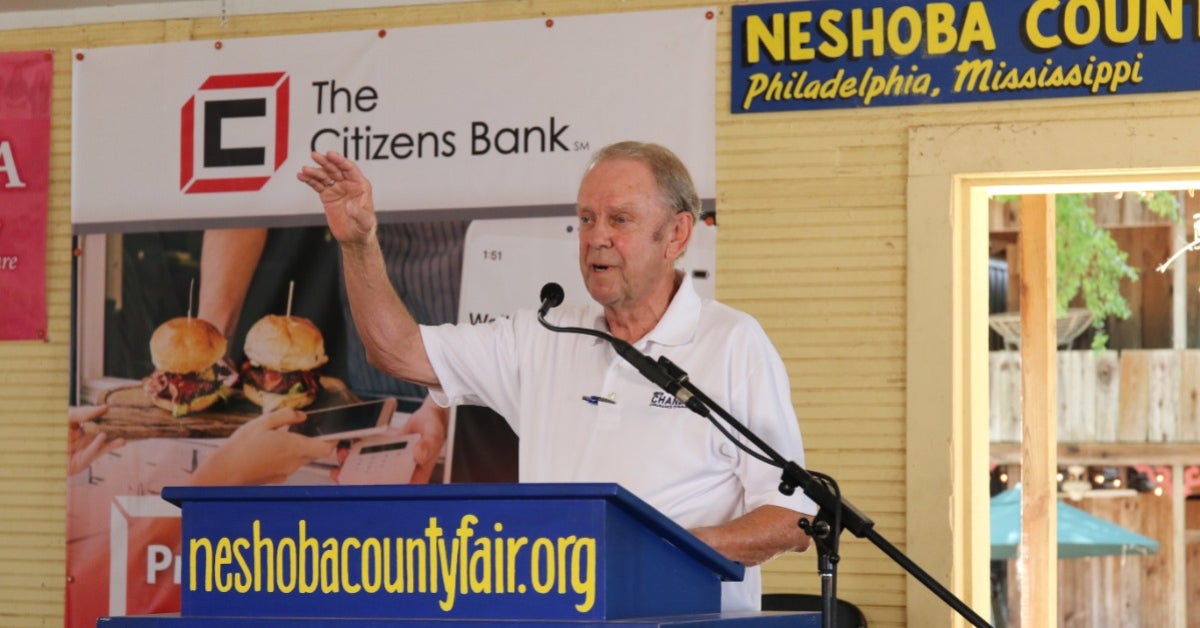50 years later memories still fresh from Vietnam
Published 8:02 pm Saturday, June 30, 2018

- SNAPSHOT FROM THE PAST: Capt. Jim Baker takes a moment to smile for the camera. The picture was taken in 1968 at a Air Force Base in Pleiku, located in the Central Highlands of South Vietnam.
The turning point in the Vietnam War occurred when the North Vietnamese and communist Viet Cong forces launched a coordinated surprise attack in January 1968, known as the TET Offensive. It may also have well been the turning point when some in the U.S. began to have disdain for those who were called to serve.
In November 1968, 24-year-old Ensign Chester Martin arrived in Vietnam.
The war was well under way and the TET Offensive had occurred in January of the same year.
After receiving his commission as an officer, Martin had volunteered for Swift Boat duty. Martin, who is a Vicksburg resident now, said, “There were about five people assigned to me,” including an engine man, a radar man, a gunner’s mate and a ‘bosun’s mate’.
“And at one point I had a Vietnamese officer assigned to my boat as an interpreter,” Martin said.
The mission of Swift Boat crews, who were equipped with armaments, included patrolling the coast of Vietnam, looking for Vietnamese vessels that may have seemed out of place, boarding these boats and searching for weapons and contraband, Martin said.
The crews would also put Marines or Army patrols onto the beach.
“They would go in and make contact with the enemy, and I would lie broadside to the beach and they would radio me to come in and start firing my weapons,” Martin said. “Our boat had a 50-caliber machine gun on the fantail and mounted on top was an 81 mm mortar. Then above the pilothouse, we had twin 50’s (twin .50 caliber machine guns) that rotated 360 degrees, so we had quite a bit of firepower.”
The 81 mm mortars were made for land use, Martin said, so firing it off a boat was a challenge.
“You had to be careful, because you had to account for the wave action of the boat,” he said. “And that was scary at times.
“One time I had a misfire. In other words, I fired three rounds on target and suddenly I had a round jammed in the bore — It did not come out.”
With a couple of options, Martin said he could either leave it alone, hoping it would not “cook off” or he could try to reseed and fire again.
“So what I did was send all my men up to the front of the boat. I was the one who reseeded it and pulled the trigger and fortunately, it went off. I think I lost about 10 pounds waiting to see if it was going to go off,” Martin said, and then the boat crew had to call in for gunfire support from an airplane to take care of the mission since they had been unable to finish it.
Martin did say that while he was in Cam Ranh Bay, there had been very little direct gunfire, which was good, because he made it back.
However, after returning to the states, Martin, who was now a Lietenant Junior Grade, found out like many other soldiers who had served in Vietnam, not everyone respected their efforts.
“Some hippy girl came at me and spit right in my face,” Martin said. “All I could do was wipe it off my face and go on because if I had reacted and caused a scene and gotten in the newspapers that would have been a bad deal.”
This incident had occurred while he and his wife were walking in the Golden Gate Park in San Francisco.
Martin had remained in the Navy and was stationed in California, and although he was out of uniform, the stranger knew he was military, he said, because of his haircut.
Ret. Air Force Col. James C. Baker, who resides in San Antonio, Texas and is this reporter’s uncle, said he too, experienced disrespect from Americans.
“When I came home, they were spitting on me,” Baker said, adding, “We did not have the whole country behind us on this one.”
Baker, who was a captain at the time of his assignment in Vietnam, arrived in October of 1967, just before TET.
“I had only been ‘in country’ for about three months when that happened,” Baker said.
“I lived off base in a villa with about three other officers, and we woke up and did not know what was going on,” he said, but after listening to the radio, Baker said they piled in their truck and drove up to the Tan Son Nhut Air Base (near Saigon), which was where they had been assigned.
Baker said the front gate of the base had been blocked off with 18-wheeler flatbed trucks.
“We told them who we were, but they would not let us in. They were afraid, they did not know if we were Viet Cong disguised as Americans. So we went around to another gate, and this South Vietnamese guy jumped out with his automatic weapon” Baker said, “And I thought, ‘oh God that’s it,’ but he recognized us and didn’t shoot us.”
Baker said he told the men who were with him in the truck, they were going back to the front gate, and were then let in.
Baker said they all remained on the base for 10 days.
“We could not get off. I had to stay in the barracks with my enlisted guys, because I had orders for Pleiku (Air base) which was up in the central islands, and I couldn’t go until that was over with,” he said.
But once in Pleiku, Baker said, about every other night, they would have attacks on the base and would have to go to the bomb shelter.
Baker returned to the states in October of 1968 and said like all wars, the Vietnam War was political.
“Every administration has its own strategy of what kind of war they are going to fight and at the time the strategy was anyone that is attacked or threatened by a communist country, we are going to their aid,” Baker said. “That is why we sent 600,000 Americans and lost 58,000. We were there to help them, but then it got extremely political.”






